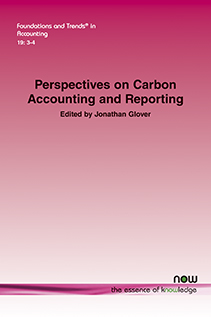How Carbon Accounting Supports Corporate Decarbonization
By Dominik Asam, Member of the Executive Board and Chief Financial Officer, SAP SE, Germany, d.asam@sap.com | Jürgen Ernstberger, Chair of Financial Accounting, TUM School of Management, Technical University of Munich, Germany, ernstberger@tum.de | Gunther Friedl, Chair of Management Accounting, TUM School of Management, Technical University of Munich, Germany, gunther.friedl@tum.de
Abstract
There is broad consensus on the imperative for corporate decarbonization to combat climate change. Achieving this goal necessitates setting clear greenhouse gas emission targets and managing progress efficiently. In addition, it is crucial that regulatory reporting requirements are aligned with useful business information regarding carbon, with accurate carbon data being the prerequisite for carbon accounting. Current information systems, however, fall short of adequately supporting management needs in this area. The new or upcoming transparency requirements like the EU Corporate Sustainability Reporting Directive (CSRD) or the U.S. Securities and Exchange Commission’s (SEC) final rule on climate-related disclosures are primarily designed to stimulate transparency rather than for providing decision-useful information for operational management. To create additional value through management actions, leveraging traditional financial management systems, known for their rigor and audibility, likely help to facilitate corporate decarbonization efforts. Such systems enable detailed tracking of and accounting for direct emissions and those from purchased goods and services. The systems are accompanied by an allocation of not directly attributable emissions to calculate product carbon footprints. By building on and extending existing accounting frameworks, concepts, tools, and reliable data derived from business transactions, the systems would facilitate both decision-useful information to investors and robust internal controls.
Perspectives on Carbon Accounting and Reporting
Double-entry bookkeeping revolutionized financial accountability centuries ago, and today, its principles are shaping a new frontier—carbon accounting. The articles in this issue on Perspectives on Carbon Accounting and Reporting were contributed by leading academic and practitioner experts on carbon accounting. The authors highlight key challenges, including responsibility for Scope 3 emissions, reliance on third-party estimates, the allocation of emissions to products, the importance of integrating carbon accounting with traditional financial and managerial accounting systems, and the need for commonly accepted carbon accounting standards.

Companion
Foundations and Trends® in Accounting, Volume 19, Issue 3-4 Special Issue: Perspectives on Carbon Accounting and Reporting
See the other articles that are also part of this special issue.